What Are the Best Sample Packs?
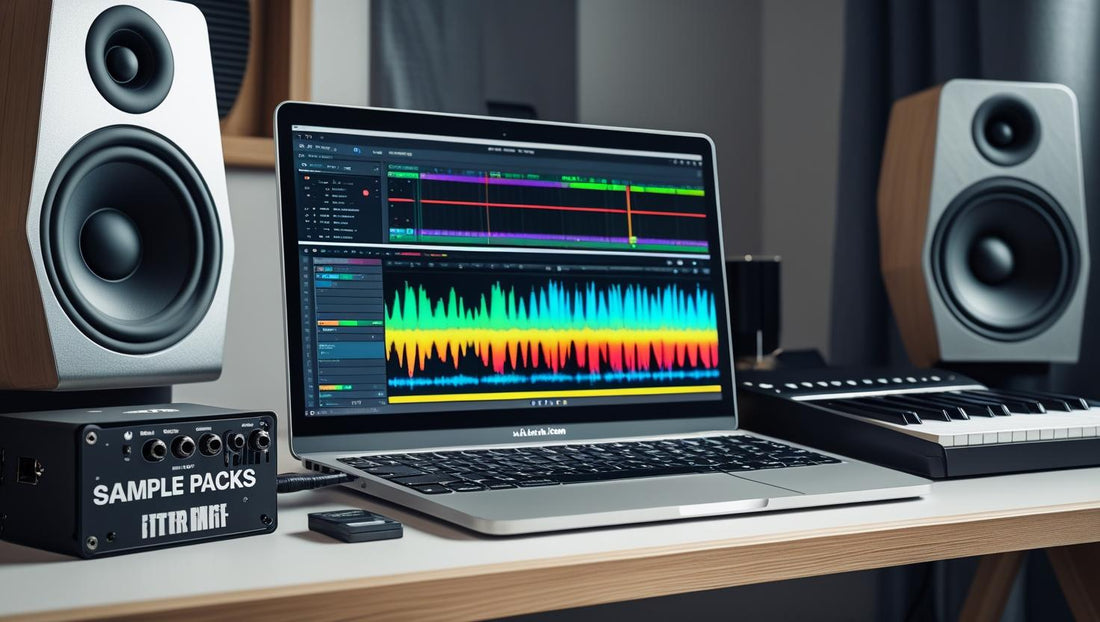
What Are the Best Sample Packs?
Sample packs are essential tools for music producers, offering pre-recorded sounds like drums, melodies, and vocals to streamline creativity. They help artists overcome creative blocks and speed up workflow, whether for beats, EDM, or film scoring. With countless options available, choosing the right pack can be overwhelming this guide breaks down the best sample packs by genre, quality, and value.
Whether you're a beginner or a pro, sample packs provide instant inspiration. Free packs offer a great starting point, while premium packs deliver professional-grade sounds. Understanding their use, legality, and customization can elevate your productions. Let’s explore the top sample packs and how to use them effectively.
Understanding Sample Packs
What Is a Sample Pack?
A sample pack is a collection of audio files, including loops, one-shots, and sound effects, designed for music production. These packs help producers quickly add high-quality sounds to their projects without recording from scratch. They come in various formats (WAV, MIDI, etc.) and are used in DAWs like FL Studio, Ableton, and Logic Pro. From drum hits to vocal chops, sample packs enhance creativity and efficiency in music-making.
Types of Sample Packs (Drums, Melodies, Vocals, FX)
Sample packs are categorized by sound type: drums (kicks, snares, hi-hats), melodies (synth loops, chord progressions), vocals (acapellas, ad-libs), and FX (risers, impacts). Drum packs are crucial for beatmakers, while melody packs help with songwriting. Vocal samples add a human touch, and FX enhance transitions. Some packs are genre-specific, like trap 808s or orchestral strings, catering to different production styles.
Why Producers Use Sample Packs
Producers use sample packs to save time, experiment with new sounds, and maintain professional quality. Instead of recording live instruments, they layer pre-made samples for polished tracks. Packs also help beginners learn arrangement and sound design. Even top artists use samples—whether tweaking them for originality or using them as-is. However, overusing popular samples can make tracks sound generic, so customization is key.
Top Sample Packs by Genre
Best Hip-Hop/Trap Sample Packs
For hip-hop/trap, check out Cymatics – Trap God (hard-hitting 808s), Splice – Kenny Beats Essentials (versatile loops), and Lex Luger Drum Kit (classic trap sounds). These packs include punchy drums, dark melodies, and vocal chants. Producers like Metro Boomin often layer these samples with original sounds for a unique feel. Look for packs with clean 808s, snappy snares, and eerie synths for authentic trap vibes.
Best EDM/Dance Sample Packs
Top EDM/dance packs include KSHMR Vol. 3 (festival-ready drops), Vengeance Essential Clubsounds (classic house/techno), and Splice – Martin Garrix Essentials (big-room energy). These feature pulsing basslines, euphoric leads, and punchy kicks. EDM producers rely on such packs for instant energy, often layering them with synths for a fuller sound. Look for packs with build-ups, drops, and vocal hooks for dynamic tracks.
Best Cinematic/Orchestral Sample Packs
For cinematic/orchestral music, Spitfire Audio – LABS (free emotional textures), Heavyocity – NOVO (modern hybrid scoring), and Hans Zimmer Percussion (epic drums) are top choices. These packs include strings, brass, and atmospheric pads for film/game scoring. Many offer Kontakt instrument patches for realism. Cinematic producers blend these with synths for hybrid tracks, ideal for trailers and soundtracks.
Free vs. Paid Sample Packs
Where to Find High-Quality Free Samples
Great free packs come from Cymatics Freebies, Splice Free Sounds, and Bedroom Producers Blog. Reddit’s r/Drumkits also shares free hip-hop samples. Free packs vary in quality—some lack polish, while others rival paid ones. Always check licensing (royalty-free vs. attribution required). Free samples are perfect for beginners, but pros may upgrade for exclusivity and higher-quality sounds.
Premium Sample Packs Worth the Investment
Paid packs like Splice Sounds, Loopmasters Artist Series, and Unison’s MIDI packs offer pro-grade sounds. They provide exclusive, curated content with better mixing and variety. Subscription services (Splice, Noiiz) allow affordable access. Investing in premium packs ensures unique, high-fidelity sounds that stand out.
How to Choose Between Free & Paid
Free packs are great for learning and testing styles, while paid packs offer premium quality and exclusivity. If you’re serious, invest in genre-specific paid packs. Use free samples for experimentation, then upgrade for professional releases. Always check licenses—some free samples require credit, while paid ones are usually royalty-free.
Must-Have Sample Pack Providers
Splice – Best for Subscription-Based Packs
Splice offers unlimited downloads via subscription, with high-quality packs across genres. Its rent-to-own plugins and artist-exclusive packs (like Diplo, Oliver Heldens) make it a top choice. The cloud-based library lets producers preview sounds before downloading.
Cymatics – Best for Modern Producers
Cymatics delivers trendy, viral-ready sounds (like Trap, Future Bass, Lo-Fi). Their free packs are popular, while premium packs (e.g., Diamonds) offer polished loops. Their YouTube tutorials help producers maximize samples.
Loopmasters – Best for Genre Variety
Loopmasters has vast genre diversity, from techno to reggae, with packs by top artists (like Armin van Buuren). Their one-shot libraries are ideal for custom sound design.
How to Use Sample Packs Effectively
Avoiding Overused Samples
Popular samples (e.g., KSHMR’s “Oh My God” vocal) can make tracks sound generic. Reverse, pitch-shift, or layer samples for uniqueness. Dig for lesser-known packs to stand out.
Customizing Samples for Originality
Edit samples with FX, EQ, and chopping to make them your own. Combine multiple samples for hybrid sounds. MIDI packs allow key and tempo adjustments for flexibility.
Legal Considerations (Royalty-Free vs. Cleared Samples)
Most packs are royalty-free, but check licenses—some require attribution. Cleared samples (like Splice’s) are safe for commercial use. Avoid uncleared major-label vocals to prevent copyright strikes.
FAQs
Q: Are free sample packs good enough for professional use?
A: Free sample packs work well for practice and demos, but professional releases typically require higher-quality sounds. Paid packs offer better recording quality, more unique sounds, and proper licensing for commercial use.
Q: Can I legally sell beats made with sample packs?
A: Yes, as long as the sample pack is royalty-free and allows commercial use. Always check the license agreement - some packs may restrict reselling unmodified loops or require attribution.
Q: How can I make stock samples sound original?
A: Transform samples by changing their pitch, reversing them, applying effects, or chopping/rearranging them. Layering multiple samples or combining them with live recordings also helps create unique sounds.
Q: Where can I find good quality samples?
A: Reliable sources include Splice, Loopmasters, and Cymatics for paid packs, or Freesound and Bedroom Producers Blog for free options. Many DAWs also include solid starter sample packs.
Q: Do professional producers still use samples?
A: Absolutely. Sampling remains fundamental across genres from hip-hop to electronic music. The key is using samples creatively rather than relying on them unchanged.
Q: What's the biggest mistake when using samples?
A: Using samples without any modification. This can lead to copyright issues, generic-sounding tracks, and missed opportunities to develop your unique style.
Conclusion
Sample packs are powerful tools for music production, offering endless creative possibilities. Whether free or paid, the key is selecting high-quality sounds and customizing them for originality. Explore different genres and providers to find your signature sound. By understanding licensing and avoiding overused samples, you can craft professional, unique tracks. Start experimenting—your next hit might be just a sample away!
No comments


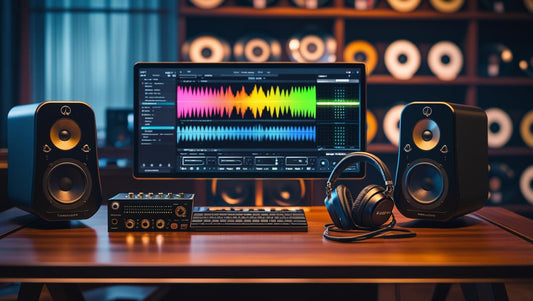
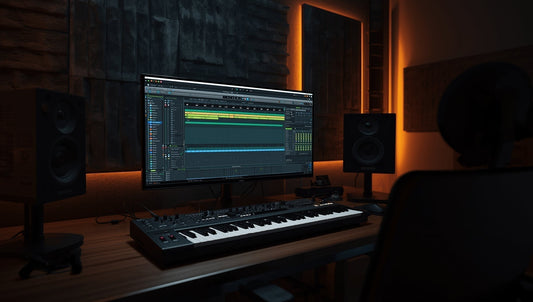
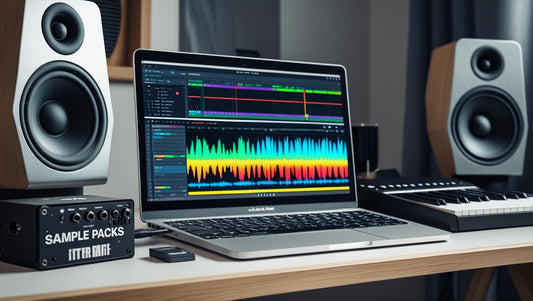
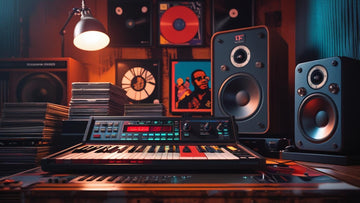
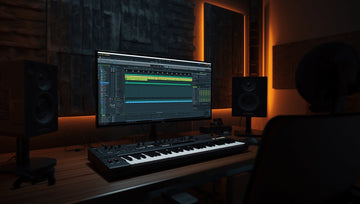

0 comments